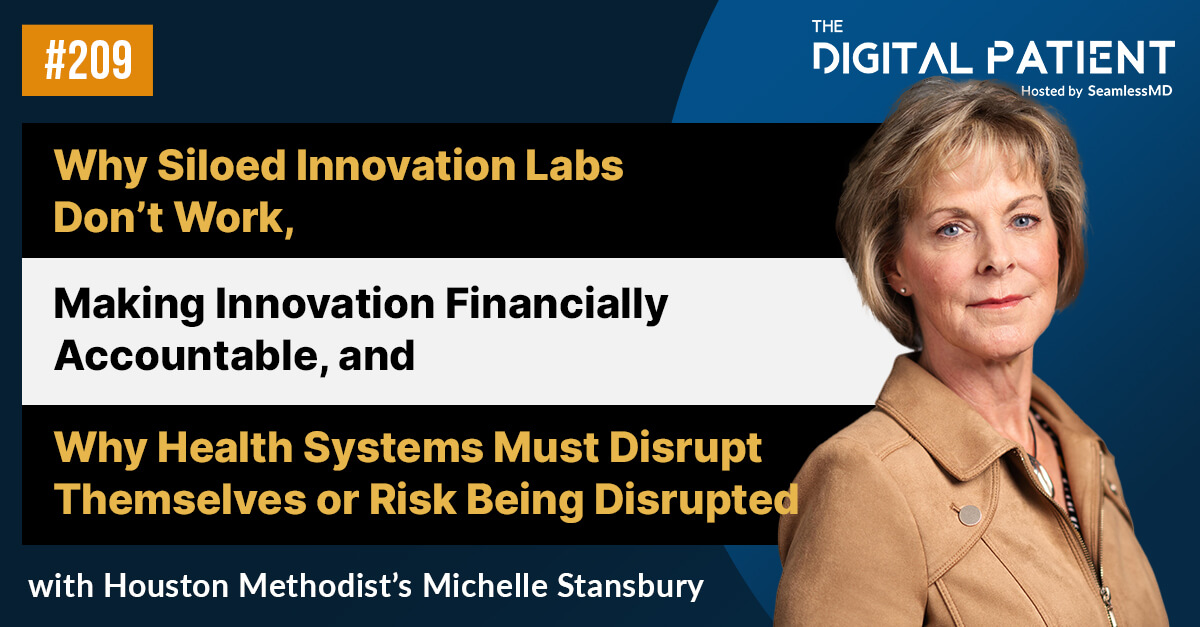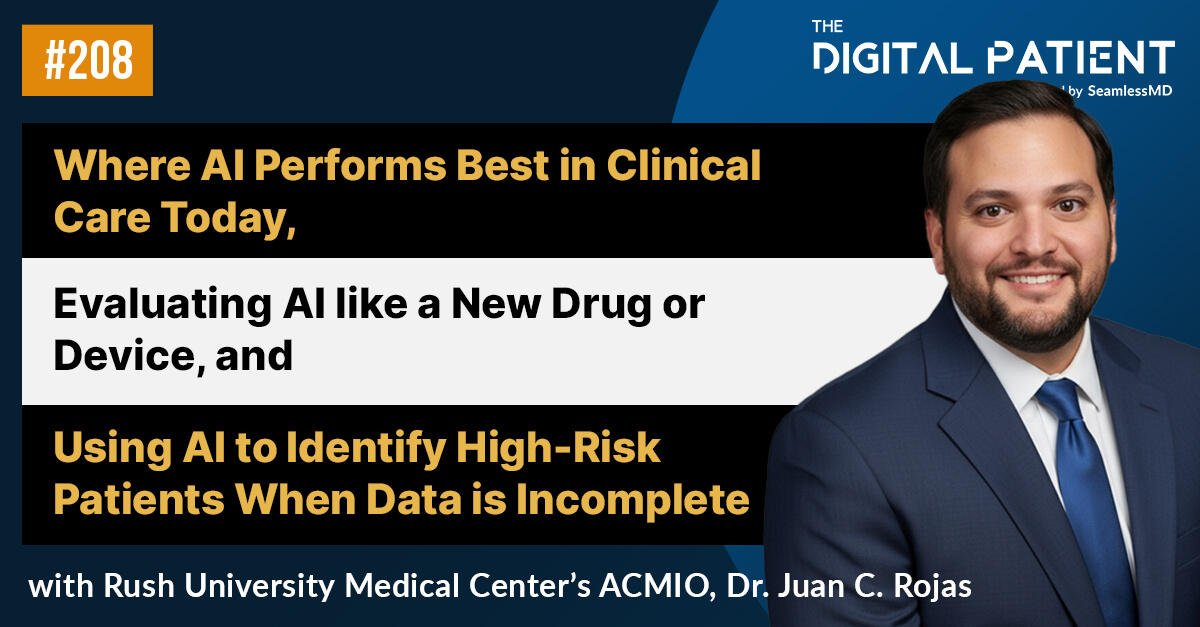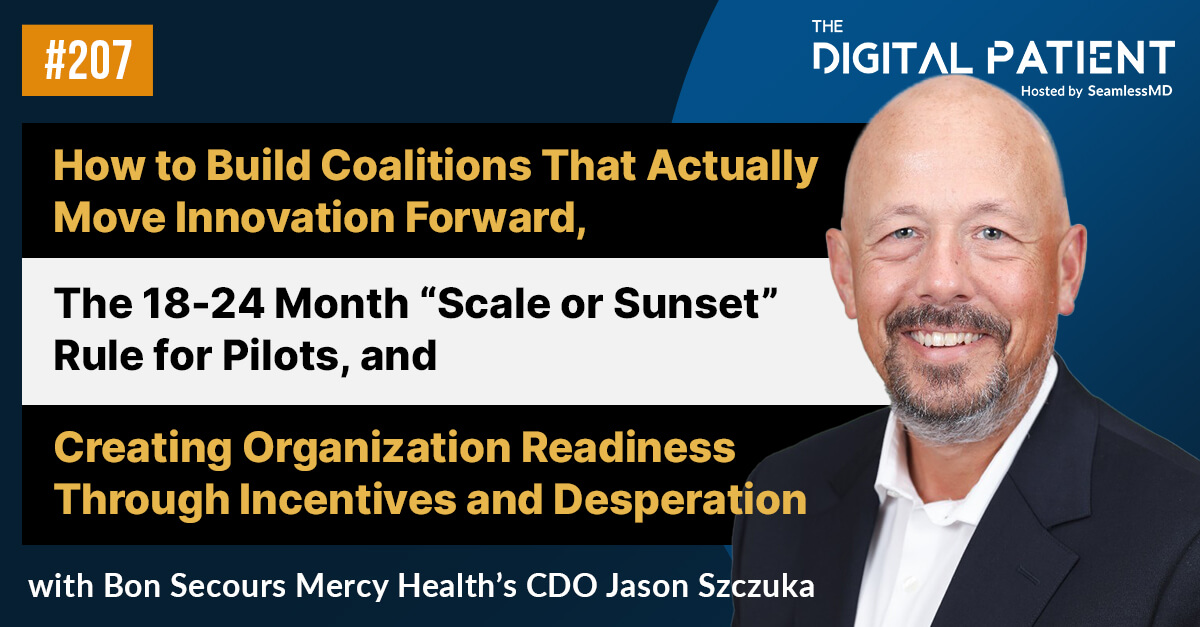Subscribe on: RSS | SPOTIFY | APPLE PODCAST | GOOGLE | BREAKER | ANCHOR
On this episode of "The Digital Patient" podcast, hosts Alan Sardana & Dr. Joshua Liu speak with Brent Kruschel, Vice President, Digital Health at Interior Health, about "Why Listening is a Superpower for Digital Health Success, How Enabling Autonomy Leads to Healthcare Worker Retention, Learning from Failures to Drive Innovation, and more..." Click the play button to listen or read the show notes below.
Audio:
Video:
Guest(s):
- Brent Kruschel, Vice President of Digital Health at Interior Health
- Dr. Joshua Liu (@joshuapliu), Co-founder & CEO at SeamlessMD
Episode 109 - Show Notes:
[00:02:01] How the current wildfire situation in British Columbia, particularly in the Okanagan Valley, has led to emergency management concerns, including the evacuation of long-term care facilities and the relocation of nearly 900 residents;
[00:03:26] How Mr. Kruschel initially got into healthcare for a job that matched his skill set, initially as a business analyst supporting the consolidation of back-office systems for Interior Health in 2002 after Interior Health Authority was formed, one of five geographically-based health authorities in 2001 by the Government of British Columbia;
[00:04:23] Why Mr. Kruschel has stayed in healthcare; his fierce pride in Canada's healthcare system as one of the few true single-payer systems globally, and how he maintains motivation through the challenges and opportunities within the system, including improving access, reducing wait times, and working towards sustainability for future generations;
[00:05:12] How Mr. Kruschel approached his role as VP of Digital Health at Interior Health after rejoining the organization earlier this year; the importance of listening, engaging, and gaining an understanding of the organization's needs; having a 30, 60, 90 day approach and the significance of talking to various stakeholders;
[00:06:11] How Mr. Kruschel's diverse background, from business analysis to EHR implementation and hospital capital planning, shapes his digital health approach: emphasizing execution, adaptability, and a focus on outcomes, and why having good governance matters for digital health as project delivery is dynamic and tailored to the unique needs of different facilities;
[00:08:30] How the role of VP of Digital Health has become increasingly important in recent years with a growing understanding that technology and information systems can significantly advance healthcare delivery, improve efficiency, and address contemporary healthcare challenges, including staff shortages, remote care, patient connectivity, and overall efficiency of the health system;
[00:11:20] Why healthcare has been slow to adopt digital for patients due to its inherent risk aversion around patient safety, and how consumer technology can help drive healthcare innovation forward;
[00:13:00] How AI presents an opportunity to enhance the quality of care as a support system, an additional set of eyes, and a quality control indicator, for healthcare professionals;
[00:14:07] How Mr. Kruschel and his digital health team engage with clinicians and ensure their buy-in for digital health solutions by involving clinicians in the process and not imposing solutions; emphasizing the need for clinician-led initiatives;
[00:15:59] How Mr. Kruschel's personal connection to the Okanagan region and the people there has influenced his vision for enhancing digital health services, the challenges of relocating his family during the COVID-19 pandemic, and the significance of connecting with the community;
[00:18:40] How Interior Health's success in retaining long-standing employees has contributed to significant knowledge and experience within the organization, and how tapping into the organization's experienced workforce underscores the human aspect of digital health transformation for Mr. Kruschel;
[00:19:19] How Mr. Kruschel approaches the challenge of employee retention in healthcare, where burnout and other challenges are causing many to leave, by surrounding himself with the best and brightest individuals who can make complex decisions and empowering them to be autonomous and find satisfaction in their work;
[00:21:45] Why the unique mandate of healthcare in British Columbia shapes Mr. Kruschel’s approach to delivering digital health services as they are responsible for the full health continuum including public health, health promotion, environmental health, acute care, community care, and long-term care, which presents opportunities to address complex healthcare issues such as alternate level of care (ALC) patients more effectively;
[00:27:08] How Mr. Kruschel embraces a philosophy of “Fail, discover, succeed, learn, grow, and repeat" and why he believes there is a need for greater transparency around project failures as sharing these experiences can benefit all healthcare systems and jurisdictions, and would allow others to learn from failures to prevent similar issues in the future;
[00:28:54] Mr. Kruschel shares one particular failure from his time at Fraser Health, where they were launching a virtual hospital for psychiatry patients and initially selected a technology solution that missed a critical piece of functionality, which was the ability for patients to connect ad hoc with healthcare providers via video conferencing, and how his team had to ultimately adapt with a more suitable solution that met the patient's needs;
[00:32:44] How Mr. Kruschel envisions a patient-centric approach to healthcare in the future where the patient holds the master file to their own health data, prioritizing the patient's goals of care and preferences, and allowing care providers to tailor interventions accordingly; A personal story about his grandmother's cancer diagnosis and how her clear goals of care guided the family's decisions in a challenging situation;
.svg)










.png)
